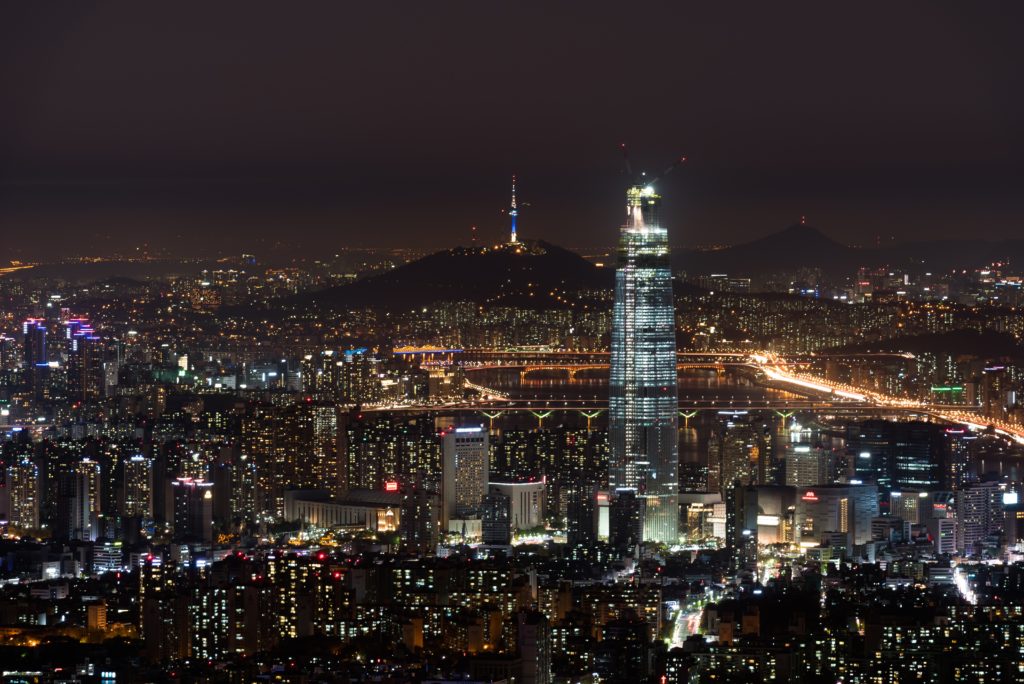The Peninsula
Engaging the Koreas on the UN’s Sustainable Development Goals
Published October 22, 2019
Category: North Korea, South Korea

By Andray Abrahamian
Wait! I know that isn’t a sexy title. But the Sustainable Development Goals (SDGs) are a set of 17 goals for 2030, adopted in 2015, that are supposed to guide policy decisions. They provide a framework that shapes development decisions at the government level and creates space for non-state actors to push for their goals. This is true in the Koreas, also.
The UN’s Economic and Social Commission for Asia Pacific recently held its third multi-stakeholder forum on the SDGs in in the sub-region of Northeast Asia. The meeting, in Vladivostok, certainly highlighted a curious region to be coordinating development goals: the six member states comprise a landlocked state of 3 million people, the biggest country in the world by landmass, the biggest by population, the most developed country in Asia, and the two Koreas. There are a range of social and political systems at work in these states. Historical conflicts abound.
The stakeholding states all made presentations on progress at the workshop, including the two Koreas.
The DPRK reported recognizing all 17 SDGs and has incorporated goals into their political system. This took roughly two years. In August 2018, the DPRK government created a National Task Force, chaired by the Vice Prime Minister and Chairman of Supreme People’s Assembly. The Deputy Director General of the Central Bureau of Statistics is the Vice Chair: the Central Bureau of Statistics is seen as vital for development effort: the North Koreans understand that a lack of capacity in information gathering and processing is an issue. They are attempting to measure and report progress using a 2012 Nutrition Survey, 2014 Reproductive Health Survey, 2014 Demographic Health Survey and 2015 Malaria survey.
Under the 17 goals, the UN laid 169 targets and 232 indicators. North Korea has simplified this down to 95 targets and 130 indicators. Alleviation of poverty, economic growth and sci-tech are priorities. In particular, zero hunger, an end to all stunting and malnutrition and self-sufficiency in food are goals. They also seek increased productivity and improvements in land and soil quality. They are pushing for the development of stockbreeding to increase sources of animal protein.
Granted, there are systemic issues the North Koreans will have to address to really tackle some of these issues: improving soil quality and productivity will require a transformation of how the agricultural sector is run, for example. Yet North Korea does have a history of signing up to some types of international agreements and attempting to implement them.
The ROK has 122 targets under the 17 SDGs. Coordination exists amongst ministries, with the Ministry of Foreign Affairs (MOFA), the Ministry of Environment (MOE) and the National Statistical Office (taking leading roles. According to the ROK presentation at the forum, the country currently ranks 18th out of 162 reporting nations at hitting their SDG goals, but there are still major failures. There is some way to go on gender issues and CO2 emissions, amongst other things.
South Korea is of course more responsive than North Korea. In fact, of all the countries in the sub-region, the ROK is the most keenly aware of and interested in meeting benchmarks set by developed countries: Seoul always seems to have an eye on OECD countries and seeks to compete with them.
Still, in both countries, national goals and the commitment to the SDGs provide opportunities for civil society actors to engage.
In South Korea, NGOs can lobby the corporate sector and the government to provide support on key issues relate to the SDGs. With the corporate sector, this might be related to corporate social responsibility programs, but it can also be about convincing companies that it is in their interest to tap into, say, unused labor capacity of disabled people. The SDGs can provide a framework under which governments, the private sector and NGOs can cooperate. The easy-to-grasp branding of the 17 goals can also help with simplifying issues for the general public, creating awareness on a range of issues.
In North Korea, the SDGs could also have an impact, particularly if there is a change in the sanctions environment that currently inhibits engagement. It should be possible for foreign civil society organizations to bring together ministries and the fledgling corporate sector to cooperate on projects, so long as they can be shown to fit into the 95 targets the DPRK has chosen and create wins for all the stakeholders. For example, production of menstrual cups in-country with consultation from a foreign social enterprise, could be argued to tackle SDGs 1 (no poverty), 3 (good health and well-being) and 5 (gender equality) by providing employment for production of a product that helps women be healthier, more comfortable and ultimately able to work more effectively.
The SDGs are ambitious and aspirational, and there is plenty of branding, bluster and propaganda by both governments and corporations alike about the SDGs. Nonetheless, both Koreas clearly take them seriously. For organizations looking to improve conditions on any issues from women’s rights to renewable energy, opportunities exist.
Andray Abrahamian is a Non-Resident Fellow at the Korea Economic Institute and Visiting Scholar at George Mason University Korea and Senior Adjunct Fellow at Pacific Forum. The views expressed here are the author’s alone.
Photo from sinano1000s photostream on flickr Creative Commons.
